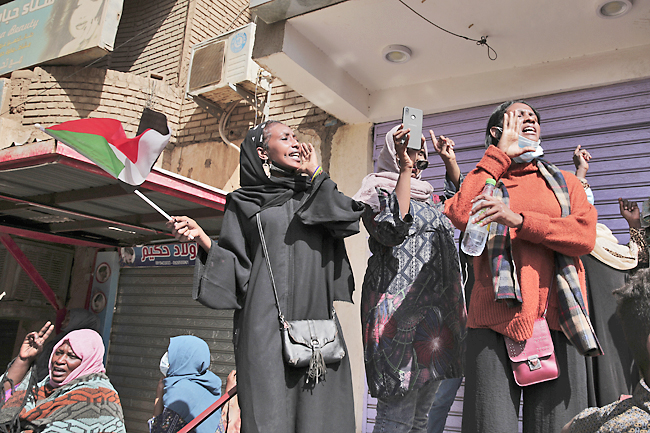CAIRO (AP) – Sudan’s Prime Minister Abdalla Hamdok announced his resignation on Sunday amid political deadlock and widespread pro-democracy protests following a military coup that derailed the country’s fragile transition to democratic rule.
Hamdok, a former United Nations (UN) official seen as the civilian face of Sudan’s transitional government, was reinstated as prime minister in November as part of an agreement with the military following the October coup. In that time he had failed to name a Cabinet and his resignation throws Sudan into political uncertainty amid uphill security and economic challenges.
In a televised national address on Sunday, Hamdok called for a dialogue to agree on a “national charter” and to “draw a roadmap” to complete the transition to democracy in accordance with the 2019 constitutional document governing the transitional period.
“I decided to return the responsibility and declare my resignation as prime minister,” he said, adding that his stepping down would allow a chance for another person to lead the nation and complete its transition to a “civilian, democratic country”. He did not name a successor.
The prime minister said his efforts to bridge the widening gap and settle disputes among the political forces have failed.
He warned that the ongoing political stalemate since the military takeover could become a full-blown crisis and damage the country’s already battered economy.
“I tried as much as I possibly could to prevent our country from sliding into a disaster. Now, our nation is going through a dangerous turning point that could threaten its survival unless it is urgently rectified,” he said. The October coup had upended Sudan’s plans to move to democracy after a popular uprising forced the military’s overthrow of longtime autocrat Omar al-Bashir and his government in April 2019.
Four months after al-Bashir’s ouster, the generals and the protesters reached a power-sharing deal to rule the country through elections in 2023. However, military-civilian ties have been frayed by the military takeover that has threatened to return Sudan to international isolation.
Hamdok’s resignation comes amid a heavy security crackdown on protesters denouncing not only the takeover but the subsequent deal that reinstated him and sidelined the pro-democracy movement. He was returned to office in November amid international pressure in a deal that calls for an independent technocratic Cabinet under military oversight led by him.



